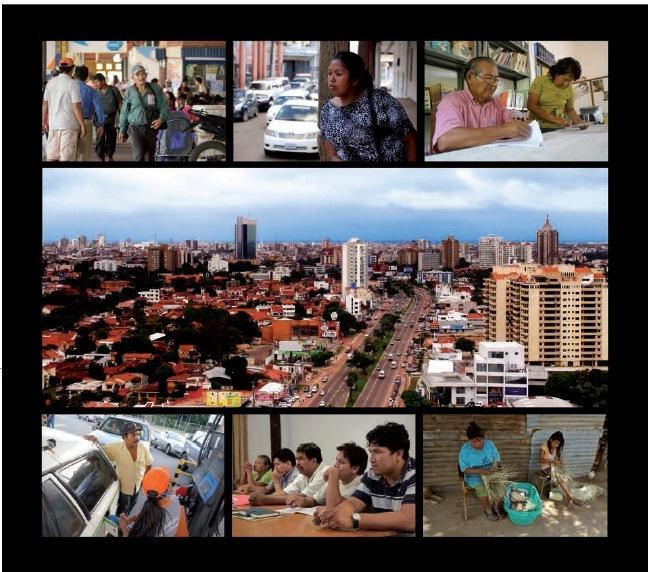Nunca Nos Fuimos: We Never Left: Urban indigenous groups in Bolivia

An UNDEF-funded Bolivia project works to strengthen representation and political participation in regional political decision-making for five urban indigenous groups in Santa Cruz de la Sierra -- Ayoreos, Guaraníes, Chiquitanos, Guarayo and Yuracaré-Mojeños.
Implemented by Apoyo Para el Campesino – indígena del Oriente Boliviano , the project concentrates on urban populations to address the current imbalance, in which Bolivia's measures to encourage indigenous participation are focused wholly on groups in rural areas. For decades, there has been mass migration of indigenous populations to cities, but these groups are still not considered part of the urban fabric. They continue to live in poverty and face high levels of infant mortality, illiteracy, discrimination, violence and political marginalization.
At the same time, a lack of reliable data limits the actions taken to improve living conditions, and the lack of representation, participation, and inclusion in public policy and urban action programmes has caused their situation to stagnate. The project therefore launched a book in October 2014 to provide substantive quantitative and qualitative data. Nunca Nos Fuimos: A Diagnosis of the Socio-Economic situation of the Ayoreos, Guaraníes, Chiquitanos, Guarayo and Yuracaré-Mojeños Populations in Santa Cruz de la Sierra, includes the result of a census conducted in coordination with Bolivia's National Office for Statistics and grassroots organizations, with indicators related to population, housing, health, education, labour, social security, migration, inter-ethnic contacts and more.
The publication provides recommendations on the way forward, including:
- A focus on youth, who account for 45% of the indigenous population and receive an average of only 4-7 years' education Taking advantage of university policies that favour enrolment of indigenous students
- A new focus by the state to identify policies and strategies for improving sustainable employment opportunities, especially for women, as the majority of indigenous women's salaries remain well under minimum wage
- A cooperative effort by community members to incorporate cultural concepts of traditional provision, such as fishing and hunting, with the necessity of earning a salary in urban areas
- Improving the quality and accessibility of health care for children and pregnant women.


